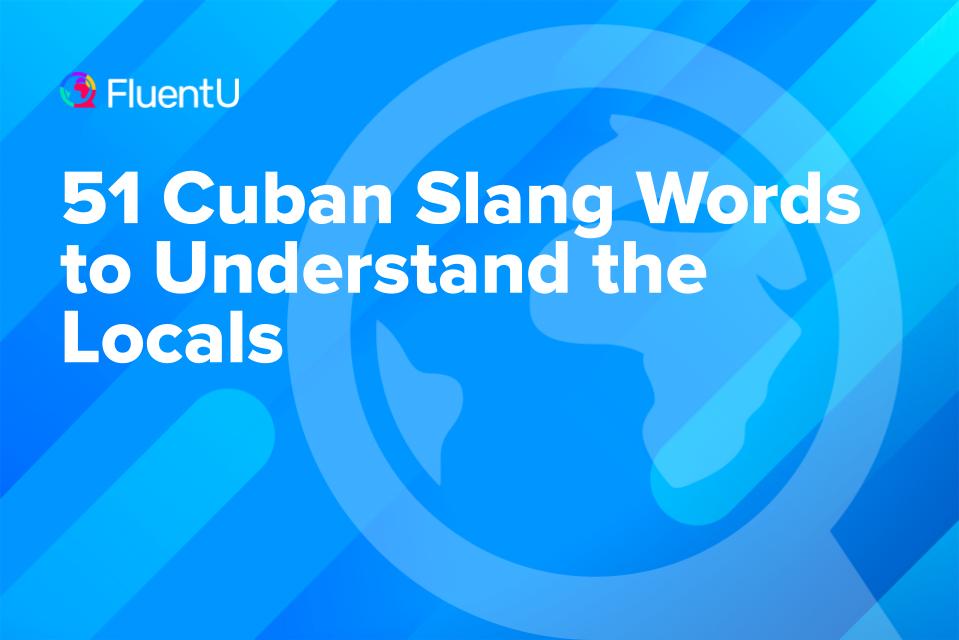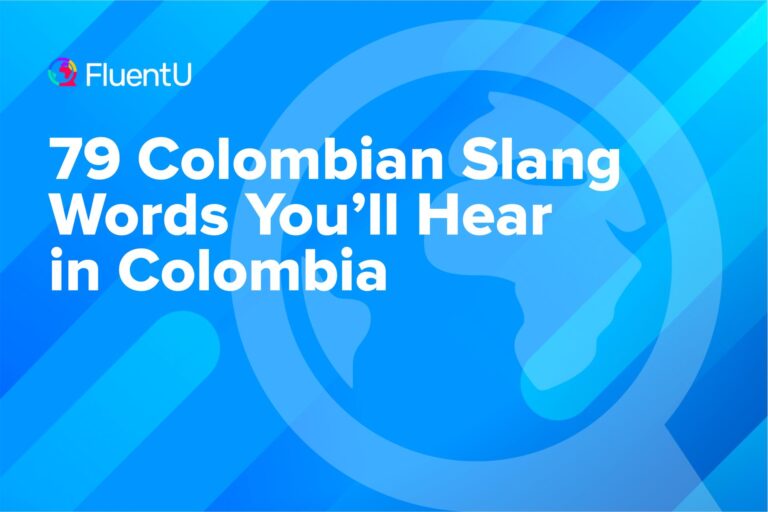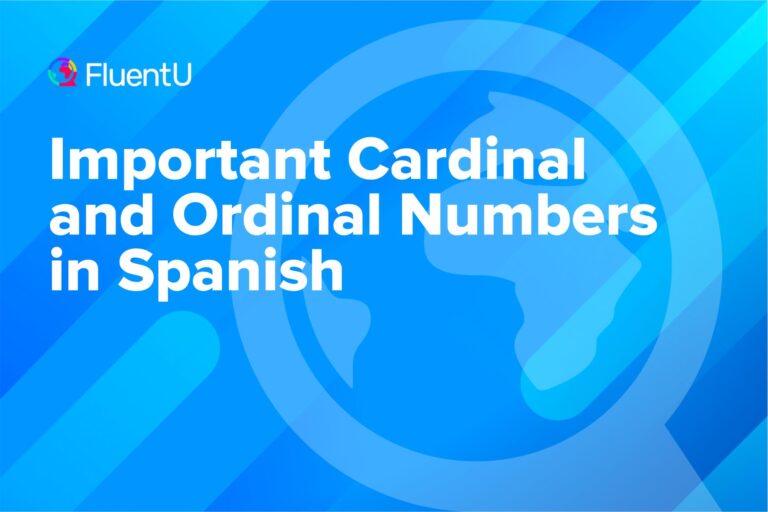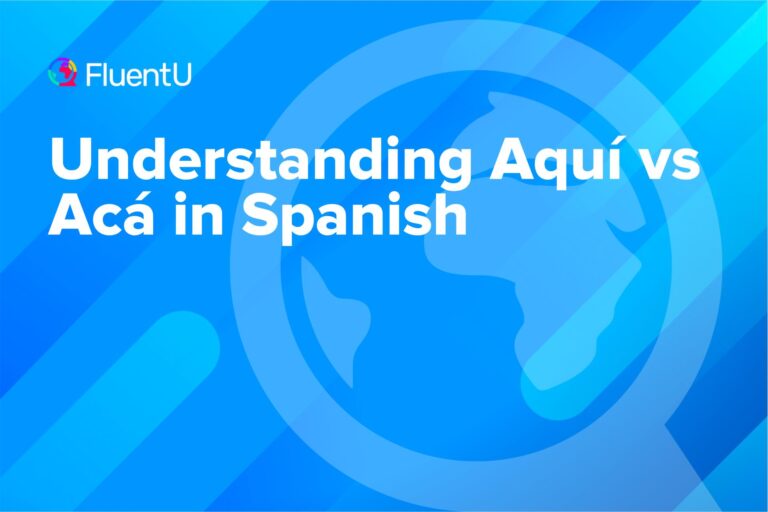Contents
- 1. ¿Qué bolá contigo?
- 2. ¿Qué bolero? / ¿Qué bolaita? / ¿Qué vuelta?
- 3. Acere
- 4. Yuma
- 5. Gringo
- 6. Un mate
- 7. ¡Tu maletín!
- 8. ¡Me resbala!
- 9. Mantén tu latón con tapa
- 10. ¡Chao, pesca’o!
- 11. ¡Chao pesca’o! / ¡Y a la vuelta, picadillo!
- 12. Nos pillamos
- 13. Tumba eso
- 14. En talla
- 15. Me piro
- 16. Jamar
- 17. Jamar un cable
- 18. Surnar
- 19. El chivo
- 20. La pincha
- 21. Pinchar
- 22. El gabeto
- 23. Echar pila
- 24. Está volao
- 25. Tipo cuadrao
- 26. Prieto / Prieta
- 27. Camello
- 28. Va en botella
- 29. Boteros
- 30. Bembelequero / Bembelaquera
- 31. Jamonero
- 32. Frutabomba
- 33. Papaya
- 34. Embullarse
- 35. Tumbar la guara
- 36. Pégate al agua, Felo
- 37. Voy a hacer café
- 38. No te vayas, espera café
- 39. No me vayas a dichabar
- 40. Deja la singae
- 41. Singar
- 42. No te rajes
- 43. Te sueño la cara
- 44. Jeva
- 45. Mango
- 46. Echar un patín
- 47. Mete tremenda muela
- 48. Se destimbaló
- 49. No dipara un chícharo
- 50. Estoy en la fuácata
- 51. Esqueleto rumbero
- Explore More International Spanish Slang
- And One More Thing…
51 Cuban Slang Words to Understand the Locals

Maybe you’re one of the millions of tourists descending on Cuba each year for the year-round warm beaches, ropa vieja (shredded beef) and endless parties.
Or, maybe, as is the case with me, more and more Cubans just seem to be popping into your social circle.
I’ve learned a lot of unique Spanish slang words and phrases from my Cuban friends, so I’ve decided to share 51 of my favorites.
Just note that I’m focusing on Cuban Spanish from Havana, and that regional and personal differences abound.
Download: This blog post is available as a convenient and portable PDF that you can take anywhere. Click here to get a copy. (Download)
1. ¿Qué bolá contigo?
What’s up with you? How’s it going? Bolá is also frequently spelled as volá because b and v sound practically the same in Spanish.
Hola amigo. ¿Qué bolá contigo?
Hey friend, what’s up with you?
2. ¿Qué bolero? / ¿Qué bolaita? / ¿Qué vuelta?
These are more options for asking someone how they’re doing.
Hola, chica. ¿Qué bolaita?
Hey girl, how you doing?
3. Acere
A friend, a dude. This is an informal way of addressing anyone, just like colega (colleague) or amigo (friend).
¿Acere, qué bolá?
Dude, what’s up?
4. Yuma
This is a word used to describe a foreigner, especially from the US. It would usually not be used for foreigners from elsewhere in Latin America.
Ese yuma es rico, ¿no?
That foreigner is rich, no?
5. Gringo
This refers only to a person from the United States. Unlike in some other Latin American countries, this word isn’t used for Europeans.
Hay muchos gringos en la ciudad este fin de semana.
There’s so many Americans in town this weekend.
You can hear this and other slang terms on FluentU, which features comedy sketch videos, movie clips and other Spanish media with interactive subtitles.
FluentU takes authentic videos—like music videos, movie trailers, news and inspiring talks—and turns them into personalized language learning lessons.
You can try FluentU for free for 2 weeks. Check out the website or download the iOS app or Android app.
P.S. Click here to take advantage of our current sale! (Expires at the end of this month)

6. Un mate
A French kiss.
Míralos. ¡Qué mate!
Look at them. What a kiss!
7. ¡Tu maletín!
That’s your problem (literally: “your briefcase”).
¿Otra vez perdiste tu teléfono móvil? ¡Tu maletín!
You lost your cell phone again? That’s your problem.
8. ¡Me resbala!
I don’t care (literally: “it slides off me”).
No estoy preocupado. Me resbala.
I’m not worried. I don’t care.
9. Mantén tu latón con tapa
Keep a lid on it (literally: “keep the lid on your trash”).
No le digas que nos encontramos. Mantén tu latón con tapa.
Don’t tell him we met. Keep a lid on it.
10. ¡Chao, pesca’o!
Goodbye (literally: “bye, fish”)
This fun way to say goodbye in informal settings is just like “see you later, alligator!” and “after a while, crocodile!” It’s a play-on-words where pesca’o (pescado, fish) is added to chao (bye) just for the mere sake of rhyming, as is the case with countless slang expressions in Spanish.
¡Chao, pesca’o, hasta mañana!
Goodbye, see you tomorrow!
11. ¡Chao pesca’o! / ¡Y a la vuelta, picadillo!
Similar to the last entry, this is a cutesy two-person exchange, just like “see you later, alligator!” and “after a while, crocodile!” It literally means “goodbye, fish!” and “and next time, minced meat!” This comes from how the first 15 days’ ration card of the month gives you fish, and the next time it gives you meat.
¡Chao pesca’o!
See you later, alligator!
¡Y la vuelta, picadillo!
After a while, crocodile!
12. Nos pillamos
This is essentially saying “¡nos vemos!” or “see you later.” This phrase can be sexually suggestive, or not, so use it with caution.
¡Qué bueno verte! Nos pillamos.
Great to see you! See you later.
13. Tumba eso
Let the subject drop (literally: “knock that over”).
Ricardo, es mi decisión. Tumba eso.
Ricardo, it’s my decision. Drop it.
14. En talla
Literally, this means “in size,” and the closest English equivalent is “it’s a good fit.” It could mean that things literally or figuratively fit or that people are understanding each other well.
¿Conociste al nuevo novio de Maite? En talla.
Did you meet Maite’s new boyfriend. It’s a good fit.
15. Me piro
“I’m getting going,” or “I’m out of here.”
Estoy cansado. Me piro.
I’m tired. I’m getting going.
16. Jamar
To eat, Cuban style.
Estoy hambriento. Jamemos.
I’m starving. Let’s eat.
17. Jamar un cable
To be really struggling financially, to be homeless, out of work or suffering from some other economic strain.
Juan jama un cable.
Juan is really struggling.
18. Surnar
To sleep deeply, like after a long day on a sunny beach.
Voy a surnar ahora.
I’m going to sleep deeply tonight.
19. El chivo
This is Cuban slang for a bicycle.
Mi coche está averiado, así que montaré en chivo.
My car is broken down, so I’ll ride my bike.
20. La pincha
Slang for “job.”
Mi nueva pincha es horrible.
My new job is horrible.
21. Pinchar
To work (literally: “to poke or stab”).
Tengo que pinchar este fin de semana.
I have to work this weekend.
22. El gabeto
Home. Most Spanish uses “casa,” but in Cuba, you can also say gabeto.
Me quedo en gabeto este fin de semana.
I’m staying home this weekend.
23. Echar pila
To flirt.
Creo que ese chico está echando pila conmigo.
I think that guy is flirting with me.
24. Está volao
“That’s amazing.”
¿Ganaste la lotería? Eso está volao.
You won the lottery? That’s amazing.
25. Tipo cuadrao
A square type of person, or someone who’s inflexible.
Es difícil trabajar con él porque es un tipo cuadrao.
He’s difficult to work with because he’s inflexible.
26. Prieto / Prieta
A black person. This word is considered to be more polite than negro in Cuba.
Ella es prieta y hermosa.
She’s black and beautiful.
27. Camello
The odd, beastly buses in Havana have “humps” so they’re referred to as “camels.” Passengers suffer quite a bit to ride one.
Tengo que tomar un camello a la fiesta.
I have to take a bus to the party.
28. Va en botella
This Cuban mode of transport involves going to up to cars at stoplights and asking for a ride in the general direction that you’re headed.
A botella (literally: bottle) used to mean a good personal connection for finding work, but now it just means a connection for a car ride.
The practice is falling out of favor as there are now many competing unofficial taxis.
It’s actually much easier for women, doctors and soldiers to coger botella (catch a taxi). The practice was common on motorcycles as well until a helmet law was passed.
Voy a tomar un botello a tu casa.
I’m going to take a taxi to your house.
29. Boteros
Fixed-route taxis (literally: “boat men”).
Toma un botero. Es barato.
Catch a taxi. It’s cheap.
30. Bembelequero / Bembelaquera
A person who gossips or spreads non-official news. Bemba on its own is slang for “lips.”
No confíes en Miguel. Él es un bembelaquero.
Don’t trust Miguel. He’s a gossip.
31. Jamonero
A creepy, touchy-feely guy.
Mi tio es un jamonero.
My uncle is a creep.
32. Frutabomba
Papaya. Why don’t they just call it a papaya? Well, because papaya in Cuban slang means something a little different.
Se me antoja una frutabomba.
I’m craving a papaya.
33. Papaya
Vagina. Yup, I told you so!
Ese vestido es tan corto que casi puedes ver tu papaya.
That dress is so short, you can almost see your fanny.
34. Embullarse
To get excited, wound up.
No te embullas todavía. Tenemos que trabajar primero.
Don’t get excited yet. We have to work first.
35. Tumbar la guara
To interrupt, to break off an established level of trust and camaraderie.
Eso es todo. Vamos a tumbar la guara.
That’s it. We going to break up.
36. Pégate al agua, Felo
This expression means “don’t leave off the subject” or “let’s come back to the subject at hand.”
It’s considered more than a bit insensitive because it comes from Cubana de Aviación Flight 455, which was bombed in 1976.
This led to the death of 73 people. Cuba blamed Cuban exiles and the Venezuelan secret police for the attack, and since then, it has frequently broadcasted the audio recording of the pilots’ last words: “Pégate al agua, Felo” (Land on the water, Felo).
The phrase stirs up hard memories for an older generation, but for younger people it’s just a phrase they’ve heard over and over, leading to its current slang meaning. As a foreigner, you probably shouldn’t risk using it, but it’s interesting to know.
Es un dicho clásico: pégate al agua, Felo.
It’a a classic saying: land on the water, Felo.
37. Voy a hacer café
Literally, “I’m going to make coffee,” but this is really said by a host to indicate to the visitors that it’s time to go.
People tend to drop by one’s home unannounced all the time in Cuba, so serving coffee is how you politely ask them to leave.
Voy a hacer café. Trabajo que hacer.
I’m going to make coffee. I have work to do.
38. No te vayas, espera café
If you’re concerned that your visitors might be a bit thick and you really want to ensure that they leave, use this variant of the phrase above (“Don’t go (yet), wait for the coffee”).
No te vayas, espera café.
You really should be going.
39. No me vayas a dichabar
Dichabar is to betray someone’s confidence by spilling the beans or revealing a secret. This is for when you want to tell someone not to repeat a word of what you’re about to say.
Esto es un secreto. No me vayas a dichabar.
This is a secret. Don’t repeat a word.
40. Deja la singae
Stop bothering me! Cubans can be direct at times, and this is one of those times.
Deja la singae.
Don’t bother me.
41. Singar
Like the standard Spanish joder, this means to have sex in Cuban slang.
No pude atender tu llamada. Estábamos singar.
I could’t take your call. We were making love.
42. No te rajes
Don’t you just hate it when everyone makes plans and then someone doesn’t follow through?
Say this one after making a plan with friends or acquaintances. It means “don’t abandon the idea” or “don’t ditch the plan.”
Realmente quiero hacer esto. No te rajes.
I really want to do this. Don’t ditch the plan.
43. Te sueño la cara
This slang, meaning “I dream of your face” actually means you have a crush on someone.
Eres hermosa. Te sueño la cara.
You’re beautiful. I have a crush on you.
44. Jeva
This can mean either a girl or a girlfriend. So mi jeva is “my girlfriend.”
Voy a cenar con mi jeva esta noche.
I’m having dinner with my girlfriend tonight.
45. Mango
Use this word when you think someone is hot or sexy. It can be used to describe a woman or man, though it’s generally used with women.
¡Esa jeva es un mango!
That girl is super hot.
46. Echar un patín
To run. Literally, it means “to throw a skate.”
Tengo que ir a trabajar. Voy a echar un patín.
I have to work. I’m going to run.
47. Mete tremenda muela
This is said about someone who talks a lot or way too much, especially about things that aren’t that interesting. It literally means that the person has a “tremendous tooth.”
A lot of people in Cuba are chatty, so if a Cuban says this about another Cuban, you know it’s really someone who will talk your ears off.
Él nunca deja de hablar. Mete tremenda muela.
Ne never stops talking. He’s a motormouth.
48. Se destimbaló
He or she fell down. This is used to describe someone who’s down on their luck.
Lo despidieron de su trabajo. Se destimbaló.
He got fired from his job. He’s not doing well.
49. No dipara un chícharo
He or she is lazy. For example, he doesn’t do anything around the house to help out.
Literally, it translates to “he doesn’t (even) snap a green bean.” The S actually disappears, as the formal Spanish spelling of dipara is dispara.
Ella no hace nada en la casa. No dipara un chícharo.
She does nothing at home. She’s lazy.
50. Estoy en la fuácata
I’m broke.
Estoy en la fuácata. Sólo tengo el cambio en mi bolsillo.
I’m broke. I have only the change in my pocket.
51. Esqueleto rumbero
Very thin (literally: a dancing skeleton).
Él necesita comer más. Él es un esqueleto rumbero.
He needs to eat more. He’s very thin.
Explore More International Spanish Slang
For more Spanish slang, click this post and the country-specific links below. Here, we include lists of Spanish slang from Spain, Latin America and the Caribbean, plus some international slang that works in almost any Spanish-speaking country:
Common Spanish Slang from Around the World (Audio Included) | FluentU Spanish Blog
Spanish slang is your key to sounding like a native. And with 291 Spanish slang words and phrases, you’ll be able to fit in with any Spanish speaker! This post shows you…
- Argentine Slang
- Bolivian Slang
- Chilean Slang
- Colombian Slang
- Dominican Slang
- Ecuadorian Slang
- Guatemalan Slang
- Honduran Slang
- Mexican Slang
- Nicaraguan Slang
- Panamanian Slang
- Paraguayan Slang
- Peruvian Slang
- Puerto Rican Slang
- El Salvadorian Slang
- Uruguayan Slang
- Venezuelan Slang
This list of slang quite long already but, of course, there’s always more to learn. One source would be movie clips like this genius, who has taken to dubbing movie clips into Cuban Spanish for comic effect.
That’s all for now.
Download: This blog post is available as a convenient and portable PDF that you can take anywhere. Click here to get a copy. (Download)
And One More Thing…
If you've made it this far that means you probably enjoy learning Spanish with engaging material and will then love FluentU.
Other sites use scripted content. FluentU uses a natural approach that helps you ease into the Spanish language and culture over time. You’ll learn Spanish as it’s actually spoken by real people.
FluentU has a wide variety of videos, as you can see here:

FluentU brings native videos within reach with interactive transcripts. You can tap on any word to look it up instantly. Every definition has examples that have been written to help you understand how the word is used. If you see an interesting word you don’t know, you can add it to a vocab list.

Review a complete interactive transcript under the Dialogue tab, and find words and phrases listed under Vocab.

Learn all the vocabulary in any video with FluentU’s robust learning engine. Swipe left or right to see more examples of the word you’re on.

The best part is that FluentU keeps track of the vocabulary that you’re learning, and gives you extra practice with difficult words. It'll even remind you when it’s time to review what you’ve learned. Every learner has a truly personalized experience, even if they’re learning with the same video.
Start using the FluentU website on your computer or tablet or, better yet, download the FluentU app from the iTunes or Google Play store. Click here to take advantage of our current sale! (Expires at the end of this month.)







